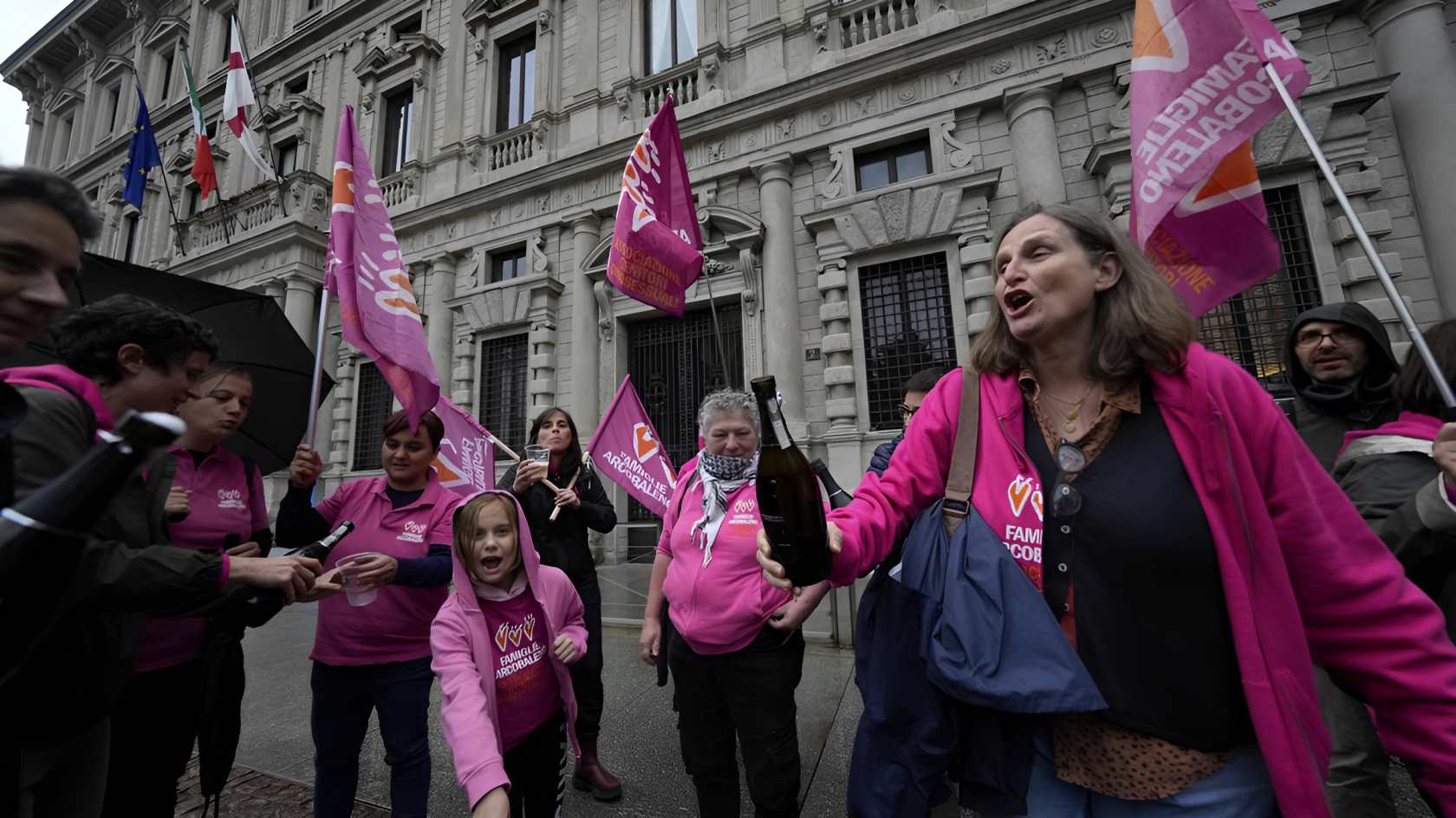Italy’s top court has ruled that women in same-sex relationships who become parents through IVF must both be recognised on their child’s birth certificate, even if one is not the biological mother.
The Constitutional Court described the failure to do so as discriminatory and said it violated the rights of the child. The ruling is now considered law and has been welcomed as a "historic" moment by opposition parties and families affected by legal uncertainty.
"This is a historic decision," said lawyer Michele Giarratano, who represents 15 children in Padua. He added that the ruling "effectively becomes law".
Chiara Soldatini, who had moved to Spain with her family fearing the loss of her parental rights, said: "I am happy no one will now be able to challenge the fact our son is our son."
Italy legalised civil unions in 2016, but same-sex couples are still barred from accessing medically assisted reproduction.
This left families created through IVF or surrogacy abroad in a legal grey area if the child was born in Italy.
While some mayors had taken the step of recognising both mothers on birth certificates, national policy had not changed.
In 2023, the government led by Giorgia Meloni, who often promotes traditional family values and has opposed what she calls the "LGBT lobby", ordered town halls to stop recognising same-sex parents on documents.
This led to court cases across Italy where prosecutors tried to remove non-biological mothers from birth certificates. In some cases, these mothers risked losing access to their children if the biological parent died or the relationship ended.
Thursday’s ruling stated that excluding a mother who takes parental responsibility for a child carried by her partner "does not guarantee the best interests of the minor" and breaches several parts of the Italian constitution.
It also said children have a right to maintain relationships with both parents and each parent’s family.
Elly Schlein, leader of the centre-left Democratic Party, called the ruling “a heavy political defeat” for the right-wing government and said it was a victory for rainbow families who have been targeted for political gain.
Soldatini, who is 48, said legal recognition is not enough.
"It cannot just be the legal system that recognises these children have a right to a family; politicians must now take the necessary step," she said. "I will only uncork the champagne when all those families with two dads can toast with me. Now is not the time to settle."
LGBTQ+ advocates have raised concerns over the erosion of rights since Meloni came to power in 2022.
The government last year extended Italy’s ban on surrogacy to also apply to those who seek it abroad—a move seen as directly affecting gay fathers.
On the same day as the court ruling, a separate court in the northern city of Pesaro approved the adoption of a child by his non-biological father.
The child had been conceived via surrogacy outside Italy.

